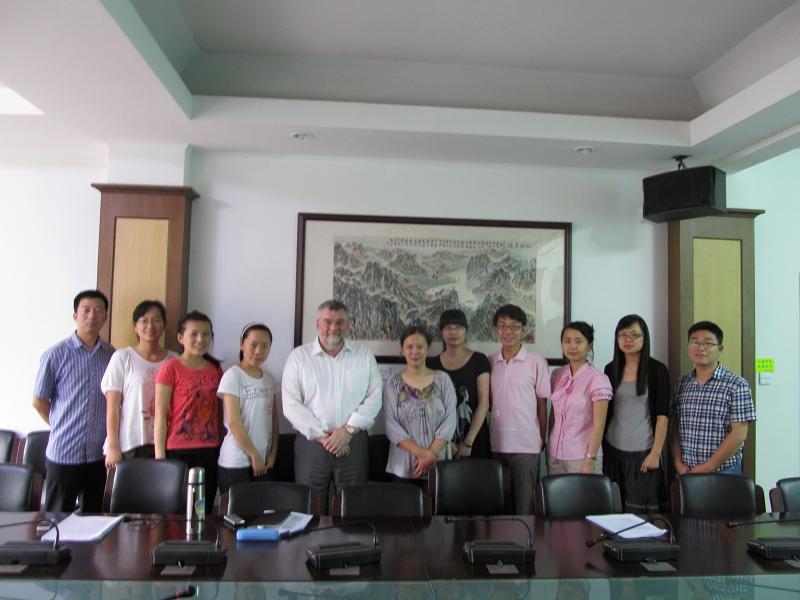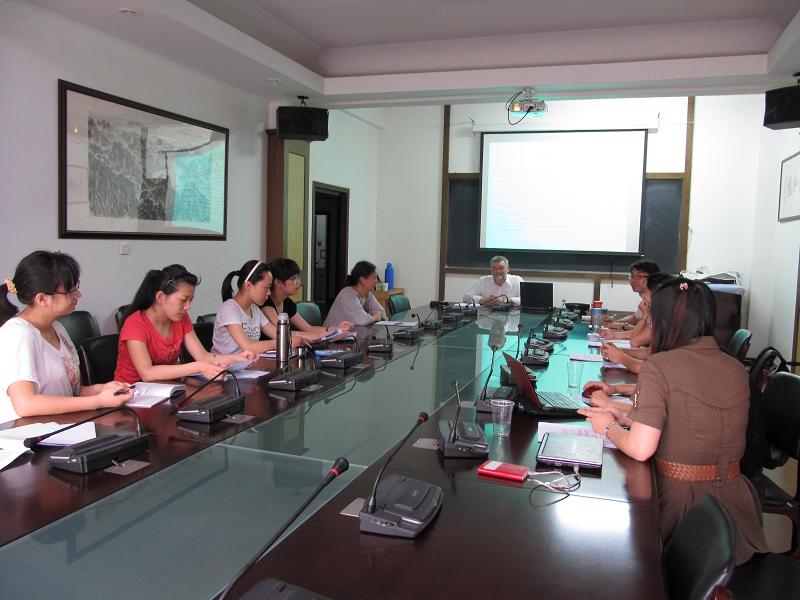What is educational change? How do schools react to social reform? Professor Michael Wilson, Leeds University, was invited to the College of Education at Zhejiang University to give students a presentation to share his views on these issues. The seminar was hosted by Professor Zhang Wenjun, head of the Institute of Curriculum and Instruction; 15 graduate and undergraduate students attended the seminar.
The aim of this seminar, according to Prof. Wilson, was to outline some of the latest thinking about the management of educational change with particular reference to global interest in educational reform and change, whole-system reform from a macro perspective, school-based change and improvement from a micro perspective, and force field analysis as a heuristic tool in educational change management.
|
According to Prof. Wilson’s lecture, three ways of change have been practiced in the UK. One, state support and professional freedom which leads to innovation but is inconsistent; two, combining market competition and educational standardisation as mechanisms to improve standards which leads to a loss of professional autonomy and an emphasis on accountability; three, to navigate between the two extremes by balancing professional autonomy with accountability.
Frankly speaking, all three ways have not been successful. Prof. Wilson proposed a fourth way which can be understood from three aspects: six pillars of purpose, three principles of professionalism and, four catalysts of coherence.
In order to help students make sense of his ideas, Prof. Wilson carried out a discussion concerning the implications of these insights reflecting on China’s whole-system reform programme with particular reference to policies that address educational inequality and to the improvement of the quality of educational provision in schools. Prof. Wilson then gave examples to show the process of policy-making.
Prof. Wilson then concluded his seminar. From the macro perspective, three key insights are worth noting in the effective implementation of educational reform, including the idea that educational attainment cannot be separated from inequalities in income, health and social welfare. These problems also need to be tackled. It is necessary to build a ‘collective capacity’ through effective collaboration between the State, the District and the School. Also, educational reforms can only improve standards with heavy investment in both school resources and the teaching profession to attract the best graduates through appropriate rewards and public recognition. On the school-based micro perspective, four key insights are worth noting in the effective management of organisational change. They are: the importance of the development of an institutional culture conducive to change; the importance of effective leadership at all levels of the organisation; the importance of flexible processes and structures with due regard to the ‘human side’ of change as well as strategy; and the importance of professional networking both within and between schools.
Prof. Wilson is a famous scholar in the educational policy research field. He has visited Zhejiang University several times to facilitate collaborative research between the People’s Republic of China and the UK focusing on secondary school reform. This seminar is a starting point for his new cycle of research on this topic.




